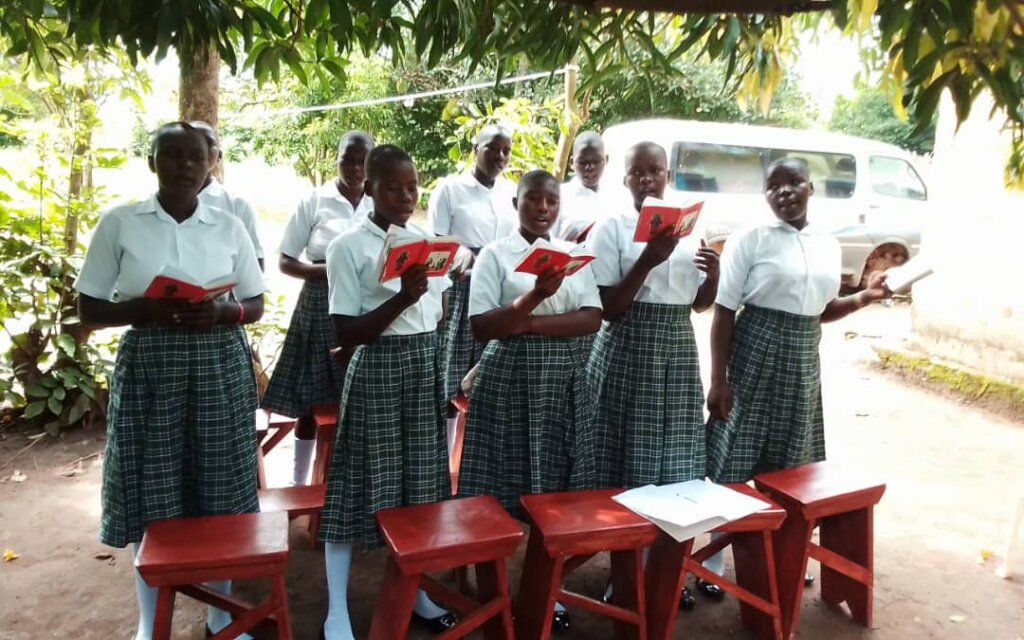By George Obua | Project Leader
Advocating for a girl child through a poem
As time move nearer to the Graduation Day of Kole Intellectual Forum - academic year 2025; the team of Institute of Home Economics - have started to train their students with a poem that will be presented to the public to advocate for the empowerment of a girl child or a younger mother with the hope of empowering the society in question, in Kole District in Northern Uganda.
The title of the poem is that: 'Girl child a precious gift’ and the poem goes on as mentioned below:
'Girl child a precious gift’
Girl child, so precious. Yet always thought of as less in the society. She cries out to be educated. Yet always thought of as a coffee maker or cleaner. And all she wants is to be given a chance to realize her full potential.
Girl child, so precious. Yet most often goes unnoticed. She cries out to be educated. Yet in most families the boys are taken to school and she is left at home. And all she wants is that single opportunity to be saved from prostitution.
Girl child, so precious. Yet some thinks of them as curses, just because of their gender. She cries out to be educated. Yet most of them grow up listening to painful words that children shouldn’t hear. And all she wants is to be given that one chance to fulfil her destiny.
Girl child, so precious. Yet thought of as wife materials only. She cries out to be educated. Yet always thought of as not good enough. And all she wants is to be given the chance to become a better leader, a better lawyer, a better doctor among others.
Girl child, so precious. She cries out for help, yet no one seems to come to her rescue. All she dreams of is a world where people support one another and there is equality. Give the girl child the chance to get that respect which others get because of education. So that she can reach out to others, motivate and teach them.
Girl child, so precious. When she is born, she becomes a daughter, a sister, a wife and a mother. Educating a girl child is one of the most important ways of changing the world. Girls are future mothers and well mothers, you know them well enough. So please support girl child education, for a better tomorrow. Save one girl child today- it starts with me and you. Be the change that you want to see- and help put a smile on the faces of the little ones.
By George Obua | Project Leader
By George Obua | Project Leader
Project reports on GlobalGiving are posted directly to globalgiving.org by Project Leaders as they are completed, generally every 3-4 months. To protect the integrity of these documents, GlobalGiving does not alter them; therefore you may find some language or formatting issues.
If you donate to this project or have donated to this project, you can receive an email when this project posts a report. You can also subscribe for reports without donating.
Support this important cause by creating a personalized fundraising page.
Start a Fundraiser